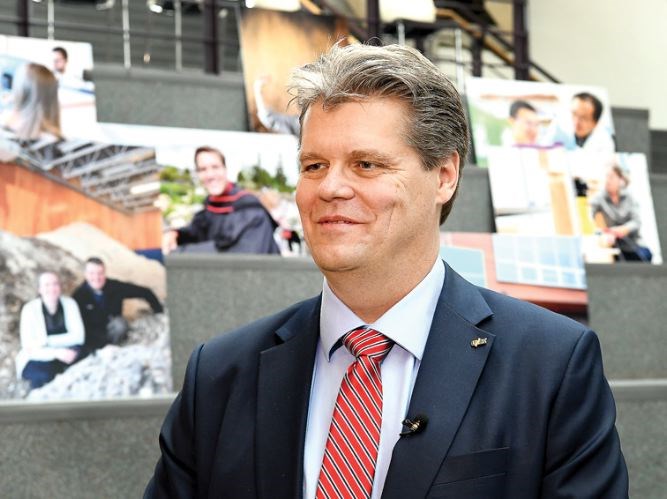The UNBC board of governors passed a two per cent tuition fee increase for the 2018/19 year, as part of a projected balanced budget.
The two per cent tuition increase is the yearly maximum allowed by the provincial Ministry of Advanced Education, Skills & Training. The international undergraduate student tuition fee rate, which is not regulated by the Province, is also set to increase by two per cent. International students, whose studies are not subsidized by provincial funding, pay more than three times UNBC's domestic tuition rate.
In addition, most student fees for services such as co-op work term fees, student services fees and levies for the students' union will also see modest increases, mostly around the two per cent mark. The cost of monthly permitted parking will rise by about six per cent, or by $2.62 per month.
The largest fee increase applied to the Graduate Students Society Fee, which is not set by the Board of Governors. Graduate students will see an 80 per cent rise in their fees, from $33.33 per term to $60. Graduate students had previously voted in favour of this increase in a referendum.
According to Dan Ryan, provost and vice-president academic, the university ran a general operating budget deficit during the 2017/18 year. The coming year's budget will be balanced, but required the increase in tuition, as well as changes to the base budget and several one-time changes to the budget.
Ryan outlined a scenario in which the university would run a $4 million deficit in the coming year's budget, as well as an increase in the deficit to $4.6 million in the 2019/20 year and to $4.9 million by 2020/2021. Ryan said this scenario would be avoided in the coming year due to the one-time adjustments.
Ryan said the university is committed to maintaining the integrity of its academic and research programming.
"Over the last number of years, we've attracted the Ministry's attention because we were running deficits. As a public body, we have legislation that does not allow us to do that without permission," Ryan said in a presentation to the board on Friday.
"So the Ministry is looking at us. And our response to that was ensuring that we were developing a multi-year plan to return to financial equilibrium."
A 2017/18 financial planning overview, passed by the Board of Governors last year, said that in May of 2016, staff had discovered an "unexpected $3.5 million deficit (consolidated) for the 2015/16 fiscal year" after the Board had already approved a balanced budget for the 2016/17 year. The Ministry of Advanced Education, Skills & Training launch an inquiry into the university's finances, according to the UNBC document, and found "a weak financial accountability framework in place, which needs to be strengthened as a priority over the coming years."
"I think we can report at this point the Ministry is pleased with some of the progress we have made," Ryan said during Friday's meeting.
"They're pleased that we're going in the right direction and that's absolutely critical because ultimately we have to be careful that we don't make all the decisions based solely on financial equilibrium."
Ryan appeared optimistic about this year's budget, touting the university's improved enrolment. After years of low enrolment numbers from domestic and international students, the university saw an overall increase in new student enrolment at 1.2 per cent from the previous year, including 2.4 per cent for domestic students. Domestic enrolment rose slightly last year as well, after a four-year period of decline of both student numbers and tuition revenue.
The dropping domestic enrolment from 2012-2016 was partly due to demographic declines in the 18-24 age category throughout Canada.
In what administrators will no doubt view as a positive development, international student enrolment also rose 4 per cent this year, after what last year's budget described as a "steep decline."
International enrolment has been breaking records at colleges and universities throughout Canada since last September. According to the latest figures from Immigration, Refugees and Citizenship Canada, 495,000 international students were hosted by universities and colleges throughout the country. This figure has blown past the federal government's target of attracting 450,000 international students to Canadian campuses by the year 2022.
Correction: A previous version of this story stated that the 2018/19 budget passed ran a $4 million deficit. This was incorrect. The UNBC Board of Governors passed a balanced budget. A planning scenario was described during Friday's meeting in which the university could have been in a $4 million deficit situation, but several adjustments were made to avoid this.


